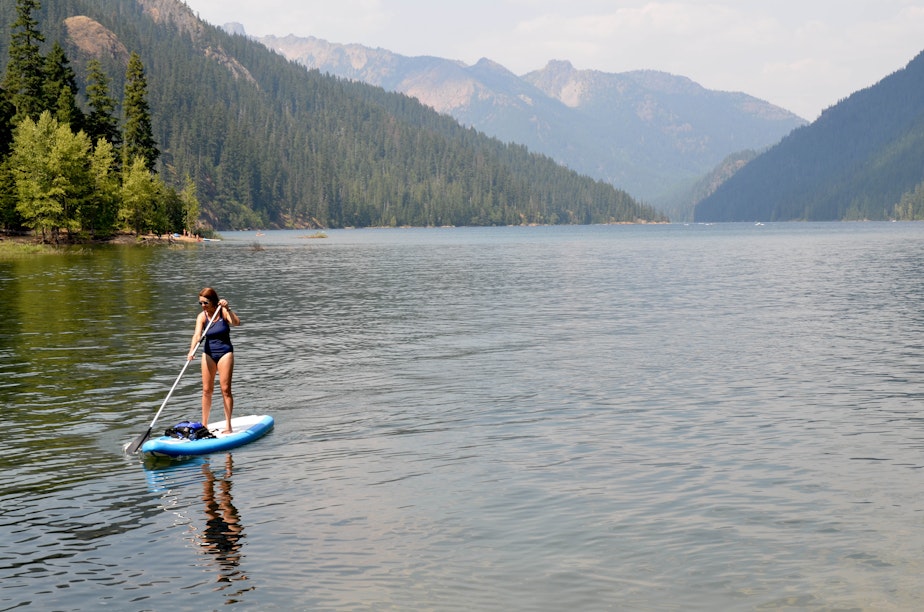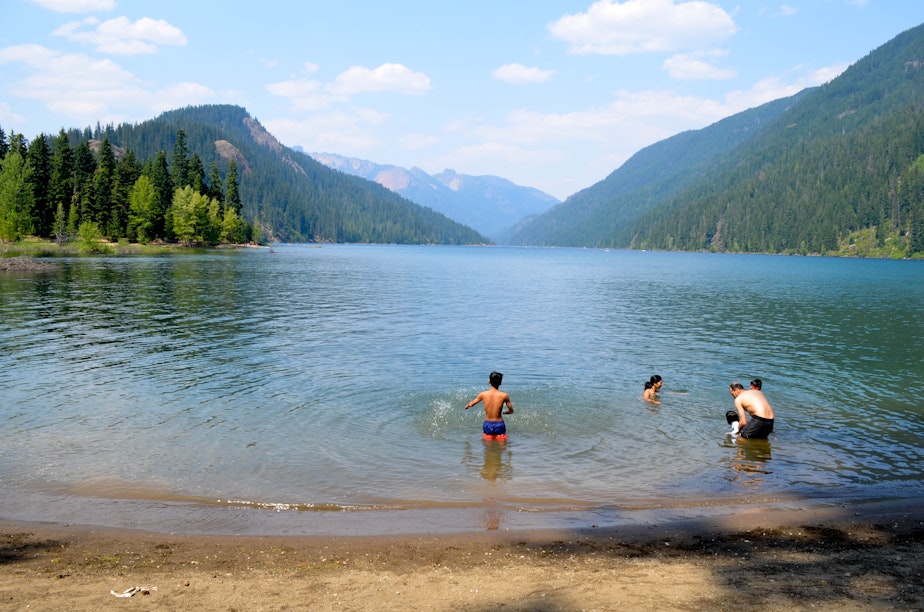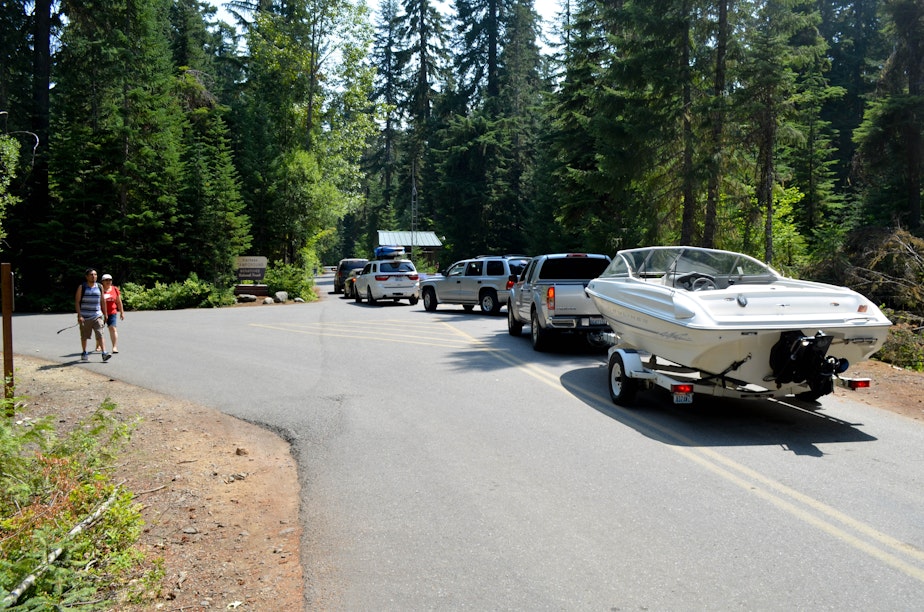No, Seattle campers, this lake does not belong to you

Yakima farmers fight Seattleites over a lake near Snoqualmie Pass.
It’s September, so the hops harvest is in full swing in Washington state’s Yakima Valley. At the Carpenter family’s farm in Granger, workers make their way between rows of trellises, pulling down vines and feeding them into a sorting machine.
The Carpenter family has grown hops in the Yakima Valley since the 1860s. Brad Carpenter, who helps helm the operation these days, says farmers in a place as dry as this valley depend on one thing: water.
“Water’s everything,” Carpenter says. “Without water, you’re not going to see anything out here but sagebrush” — and certainly not the apples, cherries, pears, and hops that contribute billions to Washington’s economy.
Here’s the problem: Most of the water that Yakima farmers use on their crops comes from the snowpack that builds each winter in the Cascade Mountains and then melts slowly through the spring and summer. And scientists say, with climate change making winters warmer, the snowpack is expected to shrink.
That has KUOW listener Bob Hiltner worried. He asked KUOW's SoundQs team to look into what water sources could replace the diminishing snowpack.
It turns out Yakima’s farmers are asking the same question, and they’ve set their sights on Lake Kachess, one of the finger lakes just off I-90 near Snoqualmie Pass. (Lake Kachess or Kachess Lake, same difference, but all agree it rhymes with "peace.")
To explain why they need a backup water source, farmers will talk about 2015. That year, the snowpack was less than a quarter than what it is normally. Brad Carpenter remembers: His farm was without water for three weeks.

“In the hops field, it probably cut our yields in half,” he says. “You can’t really afford to have a 50 percent yield loss on a hop field, because of the cost to grow those hops.”
The state estimates Roza Irrigation District farmers — which include the Carpenters — lost $76 million of crops that year.
Lake Kachess “would provide a supply of water that could be used in a drought year” like 2015, says Scott Revell, the irrigation district’s manager.
Revell says the farmers are putting up $200 million for the infrastructure needed to move water from Lake Kachess to the Yakima Valley.
“It’s like an emergency-type scenario,” he explains.
The plan to tap Lake Kachess is just one piece of a massive compromise that aims to end the Yakima Valley’s water wars for agriculture, fish, and people.
But perhaps it’s just the beginning of a new battle.
Lake Kachess is just over an hour drive from Seattle. It’s so popular that, on sunny summer weekends, cars must line up to enter the parking lot.
“It’s beautiful — the mountains and the trees,” says Jessica Shearer, who came to spend the weekend camping with her family.
Shearer hadn't known about the conflict over this lake, but then she saw the “Save Lake Kachess” signs as she was driving in. She was immediately sympathetic.

“It certainly seems really special,” she says, “so it seems like in any case it should be conserved.”
The person who’s been fighting the irrigation plan the hardest is Jay Schwartz.
At the lake-side cabin he built for his family 10 years ago, Schwartz says he and his five kids come up here for weekends year-round — even in the winter, when the bumpy, potholed forest service road is impassable. They park two miles down the road, stuff their groceries into backpacks and snowshoe in.
“It’s fun,” Schwartz says, “and we’re thankful if the snowmobile has gone before us.”
Here’s Schwartz’s argument against the farmers’ plan:
The Bureau of Reclamation says, if water were pumped from Lake Kachess, it would take two to five years for the lake to return to its former level. But Schwartz says it may never recover.
And, he adds, “You can’t get anyone in Olympia to pay attention.”
Normally, people east of the Cascades feel excluded from Washington politics. In this case, the tables are turned, and the people of Puget Sound feel excluded.
Schwartz and other critics of the plan say the state should use water more strategically instead of focusing on water storage. They say too much water is wasted on Timothy hay and alfalfa that could be used to save expensive perennial crops like apple trees and hops vines.
But Scott Revell, with the Roza Irrigation District, says the entrenched system of water rights would prevent that.
“We've spent almost 40 years and tens of millions of dollars fighting out our place in line,” he says. “The system isn’t perfect, but everybody knows what they've got.”
As for the Lake Kachess project, a final decision from the Bureau of Reclamation is expected in early 2019.
Cabin owner Jay Schwartz says, “That’s when the litigation can start.”
As far as he’s concerned, the war over this water isn’t ending anytime soon.




